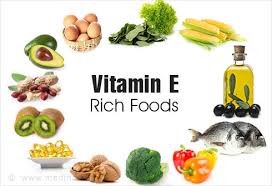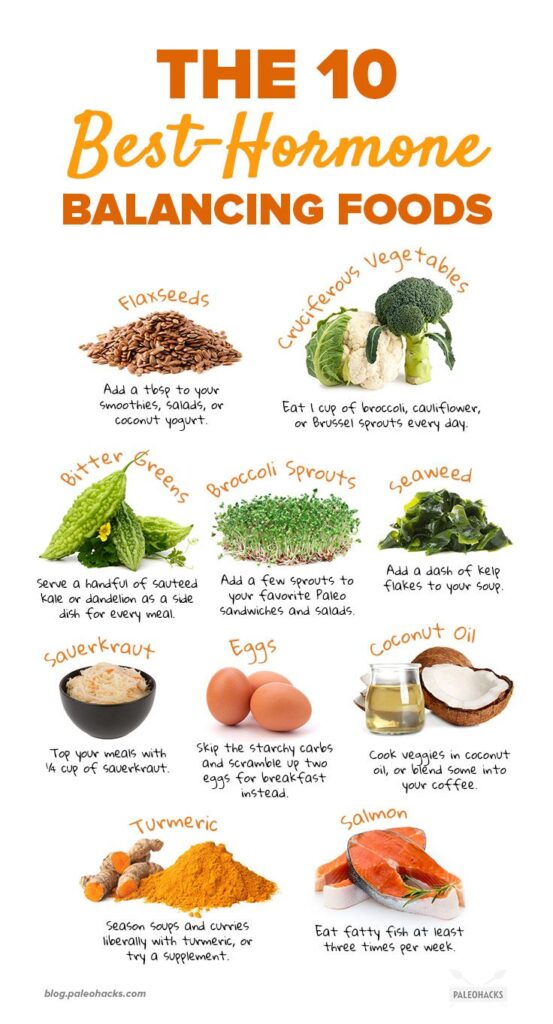What is hormonal acne?
Hormonal acne is a type of acne that is caused by fluctuations in hormones, particularly androgens such as testosterone. These fluctuations can cause an increase in oil production in the skin, leading to clogged pores and the formation of acne. Furthermore, it is most commonly seen in women during their menstrual cycle, pregnancy, and menopause. However, it can also affect men. Typically, treatment involves targeting the underlying hormonal imbalance like PCOS.

Symptoms
- This type of acne may be associated with an oily skin
- Typically, it appears on the lower part of the face, such as the jawline and chin.
- Pimples may include blackheads, whiteheads, which are not usually painful
- Cystic or nodular lesions, which are large, painful, and deep-seated.
- Flare-ups that occur at the same time each month, often around the time of menstruation.
- Persistence of acne despite using over-the-counter or prescription topical treatments.
How to know if your acne is hormonal
Hormonal acne is often associated with fluctuations in hormone levels, such as during adolescence, pregnancy, or menopause. Additionally, people with hormonal acne may experience deeper, larger, and more painful cysts or nodules than with non-hormonal acne. To determine if your acne is hormonal, it is best to consult with a dermatologist, who can examine your skin and possibly perform tests to measure hormone levels.
When does it peak?

Hormonal acne typically peaks during puberty and can continue into adulthood, particularly in women during their menstrual cycles or during menopause.
Natural treatment for hormonal acne
There are several natural treatment options for hormonal acne, including:
Diet: Eating a diet rich in fruits, vegetables, and whole grains.
Herbs: Herbs like saw palmetto, green tea, and chamomile can help balance hormones and reduce inflammation.
Probiotics: Taking probiotics can help balance the bacteria in the gut, which can in turn help balance hormones.
Exercise: Regular exercise can help reduce stress and balance hormones.
Stress management: Stress can trigger hormonal acne, so practicing stress management techniques like yoga, meditation, or deep breathing can help reduce acne.
It is important to note that these remedies may not work for everyone. Hence, you may need to visit a dermatologist who may prescribe a combination of topical and oral medications. They may include retinoids, antibiotics, and hormonal contraceptives.
The important vitamins
Vitamins A, D, and E have been shown to be beneficial for clearing acne. Vitamin A acts as an anti-inflammatory and helps to unclog pores. Additionally, Vitamin D helps to regulate the skin’s immune response and can reduce the production of sebum, which contributes to acne.

Also, Vitamin E is an antioxidant that can help to reduce the damage caused by free radicals, which can lead to acne. However, It is important to consult with a healthcare professional before starting any new supplement regimen.

Best skin care routine for hormonal acne
A good skincare routine for hormonal acne should focus on keeping the skin clean and reducing inflammation. This can include the following steps:
Cleanse: Use a gentle, oil-free cleanser twice a day to remove excess oil, dirt, and makeup. The Neutrogena oil-free acne wash does this well.
Exfoliate: Gently exfoliate the skin once or twice a week to remove dead skin cells and unclog pores.
Treat: Apply a spot treatment containing salicylic acid or benzoyl peroxide to target individual pimples.
Moisturize: Use a light, oil-free moisturizer to hydrate the skin and prevent over-drying. Cera ve daily moisturizing lotion is a good option here.
Sun protection: Wear sunscreen with at least SPF 30 every day to protect the skin from UV damage and prevent further breakouts.
It’s also important to note that diet, stress, and other lifestyle factors can also play a role in hormonal acne. So, it may be helpful to address those issues in addition to following a skincare routine. Consult with a dermatologist for personalized advice and treatment
What to avoid when you have hormonal acne
It’s important to avoid the following, when you have this condition.
- Dairy products, such as milk and cheese, which can increase oil production in the skin.
- High-glycemic-index foods, such as white bread and sugary snacks, which can increase insulin levels and lead to acne.
- Processed foods and snacks, which can contain added sugars and oils that can worsen acne.
- Skincare products that contain pore-clogging ingredients, such as mineral oil and petrolatum.
- Touching or picking at your face, as this can transfer bacteria and oil from your hands to your skin, leading to breakouts.
- Over-exfoliating (more than twice per week) or over-cleansing your skin. This can strip your skin of its natural oils and leave it dry, irritated, and more prone to acne.
How to balance your hormones naturally

- Eating a balanced diet that is rich in whole foods, including fruits and vegetables, lean proteins, and healthy fats.
- Exercising regularly at least 30 minutes a day. This may help to regulate insulin and other hormones.
- Managing stress through techniques such as yoga, (click to learn yoga for beginners.
- Getting enough sleep and maintaining a consistent sleep schedule.
- Avoiding processed foods, added sugars, and excessive caffeine and alcohol consumption.
- Considering taking natural supplements that can help balance hormones like omega-3 fatty acids, vitamin D, magnesium, and probiotics.
- Consult a healthcare professional for personalized advice and guidance.
What to expect
It’s important to note that some cases of hormonal acne may be resistant to treatment, and may require a combination of multiple approaches to manage the symptoms.
Till next time, stay healthy and be blessed!










I love your blog.. very nice colors & theme. Did you create this website yourself? Plz reply back as I’m looking to create my own blog and would like to know wheere u got this from. thanks
Magnificent beat ! I wish to apprentice while you amend your website, how can i subscribe for a blog website? The account aided me a acceptable deal. I had been a little bit acquainted of this your broadcast offered bright clear idea
I am glad to be a visitor of this sodding website! , thankyou for this rare info ! .
Of course, what a splendid site and informative posts, I surely will bookmark your website.Best Regards!
The subsequent time I learn a blog, I hope that it doesnt disappoint me as much as this one. I mean, I know it was my option to learn, but I truly thought youd have one thing interesting to say. All I hear is a bunch of whining about one thing that you possibly can fix in case you werent too busy on the lookout for attention.
Excellent site. Lots of helpful information here. I’m sending it to a few friends ans also sharing in delicious. And certainly, thanks in your sweat!
Cialis sans ordonnance 24h [url=https://tadalmed.com/#]cialis prix[/url] Acheter Cialis tadalmed.com
acheter kamagra site fiable [url=https://kamagraprix.shop/#]Acheter Kamagra site fiable[/url] acheter kamagra site fiable
п»їpharmacie en ligne france [url=http://pharmafst.com/#]pharmacie en ligne pas cher[/url] pharmacie en ligne pas cher pharmafst.shop
pharmacies en ligne certifiГ©es [url=https://pharmafst.com/#]pharmacie en ligne sans ordonnance[/url] vente de mГ©dicament en ligne pharmafst.shop
vipps canadian pharmacy [url=https://expressrxcanada.shop/#]legitimate canadian pharmacy[/url] my canadian pharmacy
Medicine From India [url=http://medicinefromindia.com/#]indian pharmacy[/url] indian pharmacy online shopping
canada drugs online reviews [url=https://expressrxcanada.com/#]ExpressRxCanada[/url] recommended canadian pharmacies
mexican online pharmacy [url=https://rxexpressmexico.com/#]mexican online pharmacy[/url] mexican border pharmacies shipping to usa
canadian pharmacy online [url=http://expressrxcanada.com/#]Generic drugs from Canada[/url] online canadian drugstore
canadapharmacyonline com [url=https://expressrxcanada.com/#]Express Rx Canada[/url] northern pharmacy canada
canadian pharmacies [url=http://expressrxcanada.com/#]Express Rx Canada[/url] canadian pharmacy 365
indian pharmacy [url=https://medicinefromindia.com/#]indian pharmacy[/url] Medicine From India
вавада зеркало [url=https://vavadavhod.tech/#]vavada вход[/url] вавада
pin-up [url=http://pinupaz.top/#]pin up[/url] pin up casino
pinup az [url=https://pinupaz.top/#]pinup az[/url] pin up casino
pin up casino [url=http://pinupaz.top/#]pin-up[/url] pin-up casino giris
вавада [url=https://vavadavhod.tech/#]вавада[/url] vavada
vavada вход [url=https://vavadavhod.tech/#]vavada casino[/url] vavada
вавада зеркало [url=https://vavadavhod.tech/#]вавада зеркало[/url] вавада зеркало
пин ап казино [url=http://pinuprus.pro/#]пин ап казино официальный сайт[/url] пин ап вход
пин ап вход [url=http://pinuprus.pro/#]пин ап казино официальный сайт[/url] pin up вход
pin up вход [url=http://pinuprus.pro/#]пин ап казино официальный сайт[/url] пин ап вход
пин ап зеркало [url=https://pinuprus.pro/#]пин ап казино[/url] пин ап казино официальный сайт
pin up azerbaycan [url=https://pinupaz.top/#]pin-up[/url] pin up
вавада [url=http://vavadavhod.tech/#]вавада официальный сайт[/url] vavada
пин ап вход [url=http://pinuprus.pro/#]пин ап зеркало[/url] пин ап вход
вавада казино [url=https://vavadavhod.tech/#]вавада зеркало[/url] vavada
pinup az [url=http://pinupaz.top/#]pinup az[/url] pin up
пинап казино [url=http://pinuprus.pro/#]пин ап казино официальный сайт[/url] пинап казино
pin up casino [url=https://pinupaz.top/#]pin up azerbaycan[/url] pin-up
vavada [url=http://vavadavhod.tech/#]вавада зеркало[/url] вавада зеркало
vavada casino [url=https://vavadavhod.tech/#]вавада[/url] вавада зеркало
pin up вход [url=https://pinuprus.pro/#]pin up вход[/url] пинап казино
discreet shipping [url=https://maxviagramd.com/#]same-day Viagra shipping[/url] buy generic Viagra online
order Cialis online no prescription [url=https://zipgenericmd.com/#]reliable online pharmacy Cialis[/url] generic tadalafil
buy modafinil online [url=https://modafinilmd.store/#]modafinil legality[/url] buy modafinil online
modafinil 2025 [url=http://modafinilmd.store/#]modafinil legality[/url] verified Modafinil vendors
trusted Viagra suppliers [url=https://maxviagramd.com/#]safe online pharmacy[/url] Viagra without prescription
order Viagra discreetly [url=https://maxviagramd.com/#]discreet shipping[/url] trusted Viagra suppliers
buy generic Viagra online [url=http://maxviagramd.com/#]legit Viagra online[/url] legit Viagra online
secure checkout ED drugs [url=https://zipgenericmd.shop/#]affordable ED medication[/url] best price Cialis tablets
best price Cialis tablets [url=https://zipgenericmd.shop/#]cheap Cialis online[/url] online Cialis pharmacy
discreet shipping [url=http://maxviagramd.com/#]no doctor visit required[/url] best price for Viagra
cheap clomid prices [url=https://clomhealth.shop/#]Clom Health[/url] how to buy generic clomid
where can i get cheap clomid without insurance [url=http://clomhealth.com/#]can you buy generic clomid for sale[/url] cheap clomid without prescription
can i order clomid pill [url=http://clomhealth.com/#]Clom Health[/url] how can i get cheap clomid without insurance
over the counter amoxicillin canada [url=https://amohealthcare.store/#]buy amoxicillin 500mg usa[/url] amoxicillin price canada
buying clomid [url=https://clomhealth.shop/#]Clom Health[/url] rx clomid
amoxicillin capsules 250mg [url=https://amohealthcare.store/#]amoxicillin buy canada[/url] Amo Health Care
average dose of tadalafil [url=https://tadalaccess.com/#]TadalAccess[/url] sublingual cialis
peptide tadalafil reddit [url=https://tadalaccess.com/#]TadalAccess[/url] sildalis sildenafil tadalafil
cialis prescription cost [url=https://tadalaccess.com/#]Tadal Access[/url] tadalafil liquid fda approval date
what possible side effect should a patient taking tadalafil report to a physician quizlet [url=https://tadalaccess.com/#]buy generic cialis 5mg[/url] cialis for prostate
cialis 5mg daily how long before it works [url=https://tadalaccess.com/#]Tadal Access[/url] canada drugs cialis
reliable source cialis [url=https://tadalaccess.com/#]cialis coupon code[/url] cialis with dapoxetine 60mg
cialis free trial phone number [url=https://tadalaccess.com/#]Tadal Access[/url] order generic cialis online
active ingredient in cialis [url=https://tadalaccess.com/#]Tadal Access[/url] cialis daily vs regular cialis
side effects of cialis daily [url=https://tadalaccess.com/#]TadalAccess[/url] cialis 20 mg price walgreens
cialis erection [url=https://tadalaccess.com/#]cialis generic cost[/url] buy tadalafil online paypal
tadalafil brand name [url=https://tadalaccess.com/#]TadalAccess[/url] how long does it take cialis to start working
where to buy cialis over the counter [url=https://tadalaccess.com/#]TadalAccess[/url] free cialis samples
cialis walgreens [url=https://tadalaccess.com/#]u.s. pharmacy prices for cialis[/url] what are the side effects of cialis
how many 5mg cialis can i take at once [url=https://tadalaccess.com/#]truth behind generic cialis[/url] best time to take cialis
cialis shipped from usa [url=https://tadalaccess.com/#]TadalAccess[/url] purchasing cialis
cialis tadalafil 10 mg [url=https://tadalaccess.com/#]canada cialis[/url] peptide tadalafil reddit
cialis in canada [url=https://tadalaccess.com/#]TadalAccess[/url] cialis generic over the counter
brand cialis australia [url=https://tadalaccess.com/#]TadalAccess[/url] cialis before and after pictures
cialis copay card [url=https://tadalaccess.com/#]cialis cheapest prices[/url] cialis super active plus
buy cialis in las vegas [url=https://tadalaccess.com/#]cialis daily side effects[/url] cialis online canada
cialis online aust [url=https://tadalaccess.com/#]cialis 20 mg tablets and prices[/url] where to buy cialis online
cheap cialis 5mg [url=https://tadalaccess.com/#]TadalAccess[/url] how much does cialis cost at cvs
where can i buy cialis on line [url=https://tadalaccess.com/#]cialis las vegas[/url] cialis 20mg
tadalafil tablets side effects [url=https://tadalaccess.com/#]Tadal Access[/url] cialis for performance anxiety
cialis free trial canada [url=https://tadalaccess.com/#]cialis shipped from usa[/url] buy cialis with american express
cialis generic overnite [url=https://tadalaccess.com/#]cialis for sale over the counter[/url] tadalafil long term usage
buy antibiotics from canada [url=http://biotpharm.com/#]buy antibiotics online[/url] best online doctor for antibiotics
Ero Pharm Fast [url=http://eropharmfast.com/#]Ero Pharm Fast[/url] what is the cheapest ed medication
over the counter antibiotics [url=http://biotpharm.com/#]buy antibiotics from canada[/url] over the counter antibiotics
Hmm is anyone else having problems with the images on this blog loading? I’m trying to figure out if its a problem on my end or if it’s the blog. Any feed-back would be greatly appreciated.
Hi, Neat post. There is a problem with your site in internet explorer, might check thisK IE still is the marketplace leader and a big part of folks will leave out your wonderful writing due to this problem.
Hi! Do you know if they make any plugins to protect against hackers? I’m kinda paranoid about losing everything I’ve worked hard on. Any tips?
Thank you for the good writeup. It in fact was a amusement account it. Look advanced to more added agreeable from you! However, how could we communicate?
I conceive this website has some really wonderful information for everyone. “The fewer the words, the better the prayer.” by Martin Luther.
Hello There. I found your blog the usage of msn. This is a really neatly written article. I’ll be sure to bookmark it and return to learn extra of your useful information. Thanks for the post. I’ll definitely return.
Hey, you used to write great, but the last few posts have been kinda boring?K I miss your super writings. Past several posts are just a little bit out of track! come on!
My brother suggested I might like this web site. He was entirely right. This post truly made my day. You can not imagine just how much time I had spent for this info! Thanks!
I’ve recently started a website, the information you offer on this web site has helped me greatly. Thank you for all of your time & work. “‘Tis our true policy to steer clear of permanent alliances with any portion of the foreign world.” by George Washington.
I think this website has some very great information for everyone :D. “Heat cannot be separated from fire, or beauty from The Eternal.” by Alighieri Dante.
I really enjoyed your unique perspective hereyou raised points I hadnt considered before, which made this super thought-provoking.
Great ?V I should certainly pronounce, impressed with your site. I had no trouble navigating through all tabs and related info ended up being truly simple to do to access. I recently found what I hoped for before you know it in the least. Quite unusual. Is likely to appreciate it for those who add forums or something, site theme . a tones way for your customer to communicate. Nice task..